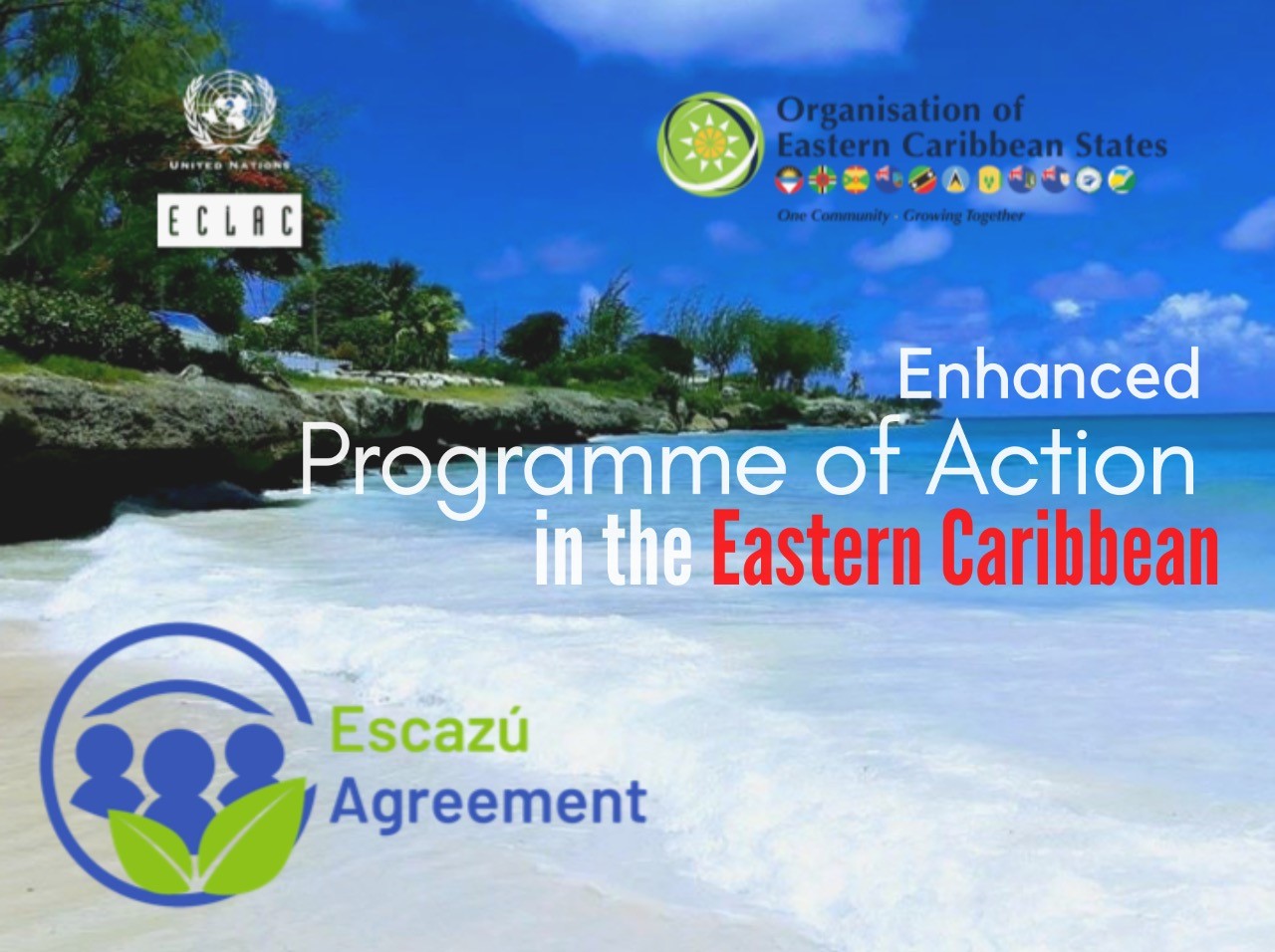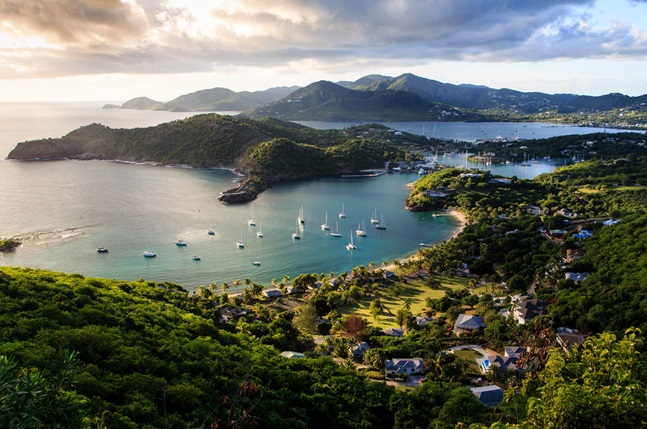ECLAC and the OECS Establish an Enhanced Programme of Action on the Escazú Agreement in the Eastern Caribbean
Work area(s)
The UN Regional Commission and the Eastern Caribbean regional integration organization agreed on a framework for enhanced cooperation and understanding to assist OECS Member States achieve the environmental dimension of sustainable development through the Escazú Agreement.

The Executive Secretary of United Nations Economic Commission for Latin America and the Caribbean (ECLAC), Ms. Alicia Bárcena, and the Director-General of the Organisation of Eastern Caribbean States (OECS), Dr. Didacus Jules, signed today a Memorandum of Understanding establishing an “Enhanced Programme of Action on the Escazú Agreement in the Eastern Caribbean.”
The programme recognizes the Escazú Agreement as a fundamental contribution to the implementation of international commitments of OECS Member States, such as the UN 2030 Agenda on Sustainable Development, the OECS Revised Treaty of Basseterre, and the Saint George’s Declaration of Principles for Environmental Sustainability. In addition to having been endorsed by the OECS Council of Ministers on Environmental Sustainability in 2018 and 2019, the Escazú Agreement has been signed by five of the six independent States of the OECS and ratified by three of them (Antigua and Barbuda, Saint Kitts and Nevis and Saint Vincent and the Grenadines).
The Memorandum states that ECLAC and the OECS intend to reinforce the environmental dimension of sustainable development in the Eastern Caribbean though the Escazú Agreement by facilitating policy formulation, technical cooperation, training and capacity-building and strategic advocacy and awareness, among others. In particular, both institutions commit to elaborating joint studies, publications, reports and analytical work, as well as provide technical assistance to Member States and organize joint activities in support of the environmental dimension of the 2030 Agenda, including green recovery.
“This Enhanced Programme of Action is the first and only of its kind concluded by ECLAC as Secretariat of the Escazú Agreement and reinforces our Caribbean First Strategy. The Escazú Agreement and the environmental dimension of the 2030 Agenda offer a blueprint to strengthen fair, participatory, inclusive and transparent green recovery efforts in the Eastern Caribbean. In that regard, ECLAC is pleased to partner with OECS to support OECS Member States underpin sustainable environmental stewardship in a post COVID-19 world,” said Ms. Bárcena.
“The OECS has been a consistent proponent that sustainable development in the Eastern Caribbean is based on responsible decision-making, which considers not only the economic benefits of development, but also the importance of pursuing a balance between economic growth, social well-being and the health of the environment. This partnership with ECLAC for promotion and implementation of the Escazú Agreement provides an excellent platform and framework for advancing the aspirations of our Small Island Developing States,” said Dr. Didacus Jules.
The ECLAC-OECS Enhanced Programme of Action on the Escazú Agreement will have a renewable duration of three years.
Subregional headquarter(s) and office(s)
Country(ies)
- Latin America and the Caribbean
- Caribbean
